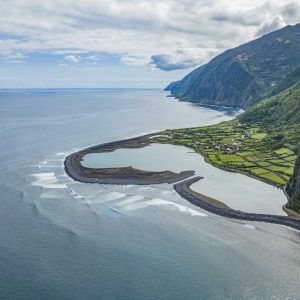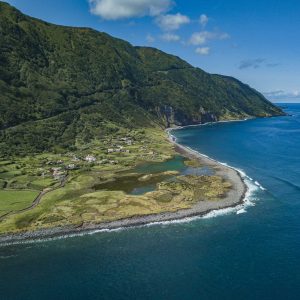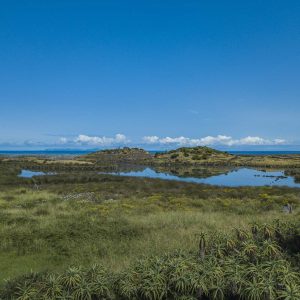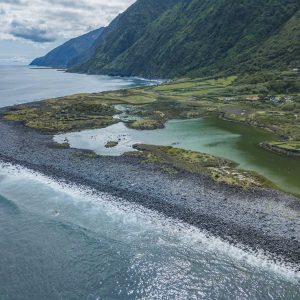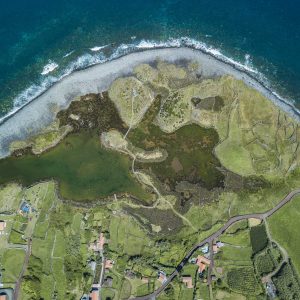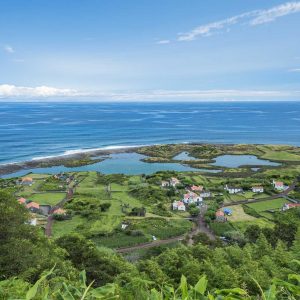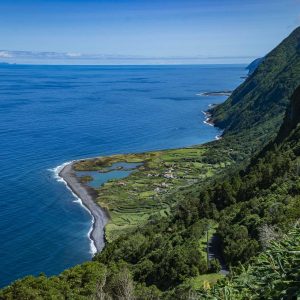São Jorge é conhecida como a ilha das fajãs. Este percurso é ideal para aqueles que gostam de se aventurar na natureza e descobrir locais paradisíacos, longe de centros urbanos, e que poucos conhecem.
A visita começa no Miradouro da Fajã dos Cubres. Deste local, podemos observar a Fajã dos Cubres e, mais ao longe, a Fajã da Caldeira de Santo Cristo, duas das fajãs detríticas da costa norte da ilha de São Jorge. Afinal, o que há de tão incrível em cada uma destas fajãs? Descemos para conhecer melhor cada uma delas.
O nome da primeira fajã provém de uma planta de pequenas flores amarelas – os , que abunda nesta zona da Ilha. A aldeia dos Cubres, considerada uma das mais belas de Portugal, foi totalmente arrasada pelo terramoto de 1757. Reconstruída e repovoada, com o passar dos anos, voltou a sofrer grandes estragos no terramoto de 1980. Apesar das vicissitudes, os proprietários voltaram a reconstruir as suas casas, e quem a visita percebe porquê. Isolada e de acesso difícil, os terrenos circundantes são muito produtivos, e, embora não tenha porto, continua a ser um local privilegiado para a pesca.
Seguimos o lindíssimo trilho até à Fajã da Caldeira de Santo Cristo, percurso com vistas deslumbrantes, mas exigente para os menos experientes em caminhadas. Aliás, é precisamente este isolamento que torna esta fajã um local paradisíaco, onde a tranquilidade e o sossego tomam conta de todos os nossos sentidos. Neste local, visitamos a Lagoa da Caldeira de Santo Cristo, zona classificada como Paisagem Protegida e local de interesse cultural e paisagístico. Conhecida principalmente pela presença de amêijoas, a iguaria mais famosa da fajã, a lagoa é um local importante para as aves de caráter residente, bem como para algumas espécies migratórias.
Sugerimos ainda uma visita ao Centro de Interpretação da Fajã da Caldeira de Santo Cristo, espaço criado com o objetivo de dar a conhecer aos visitantes a história geológica, biológica e humana das fajãs de São Jorge, em especial, das Fajãs da Caldeira de Santo Cristo e dos Cubres. Mantendo a traça original e tradicional do edifício, este espaço apresenta um quiosque multimédia que conduz o visitante numa viagem no tempo, desde a formação das fajãs até aos dias de hoje.

